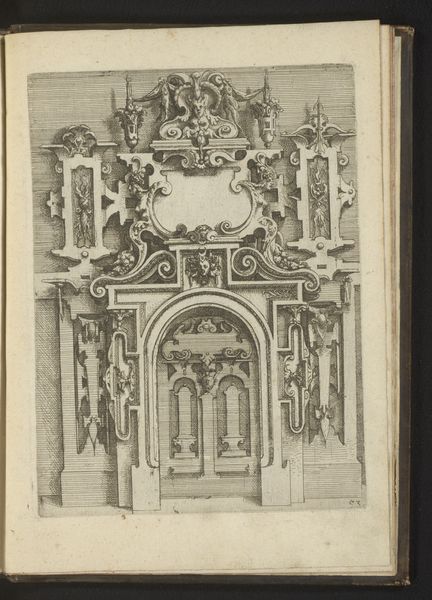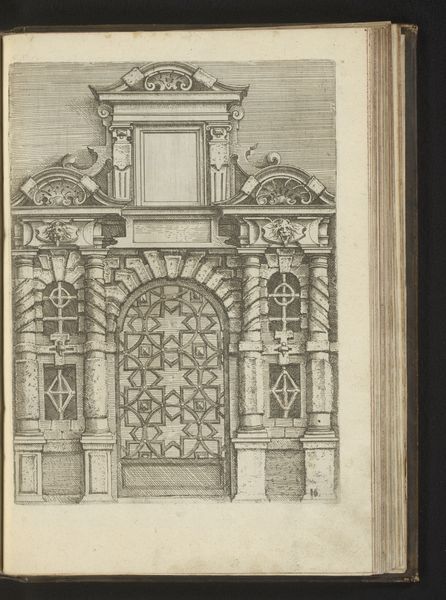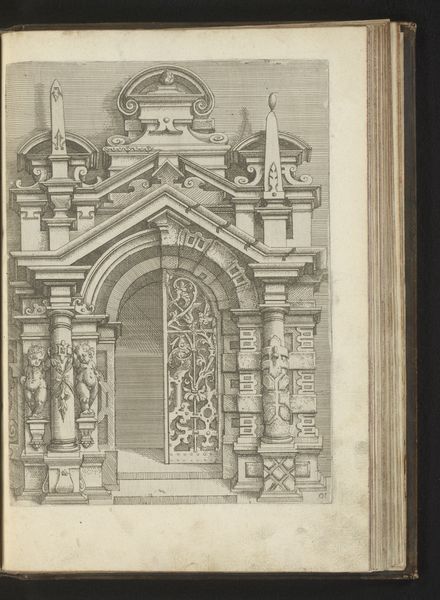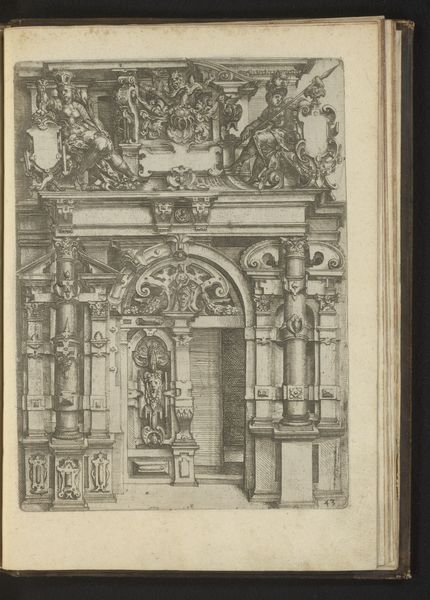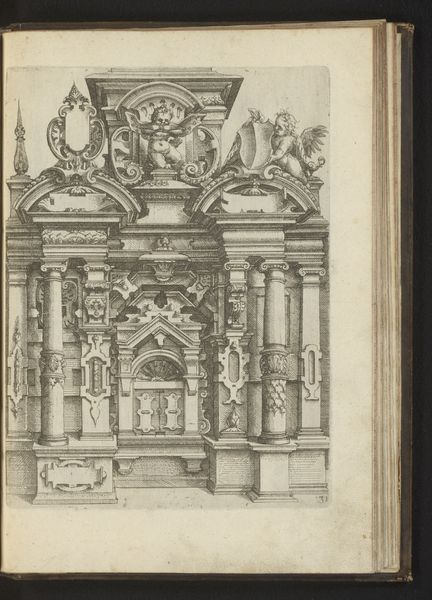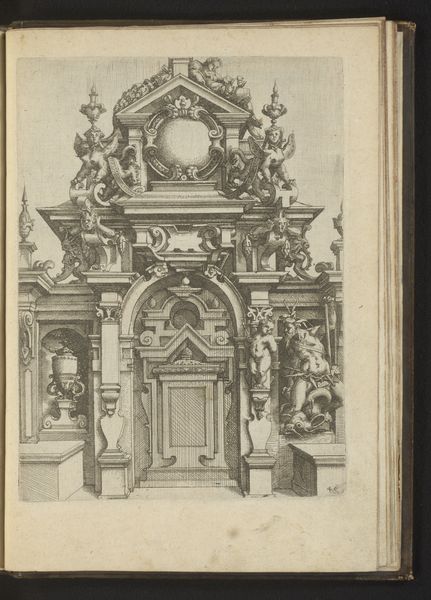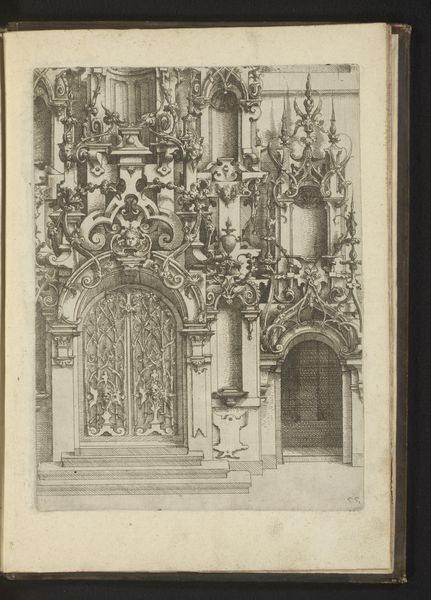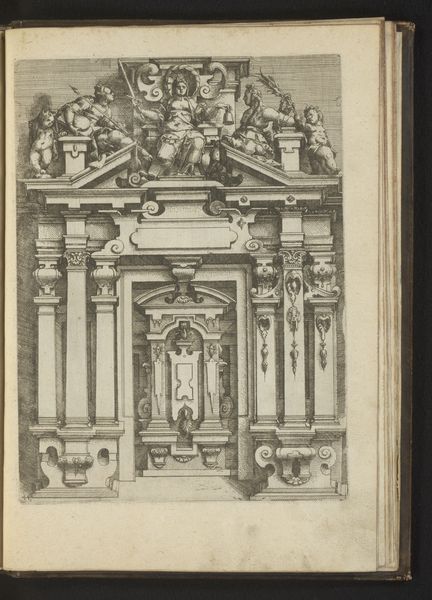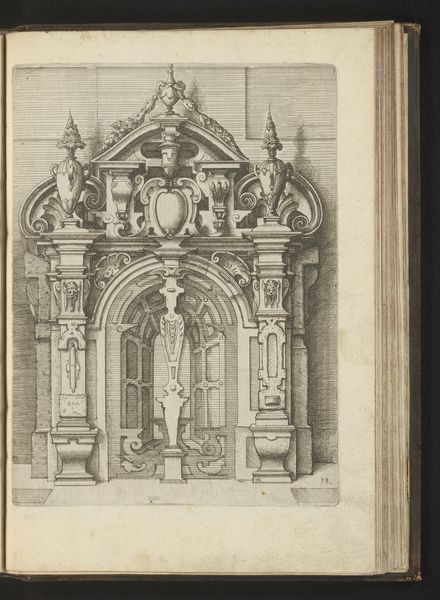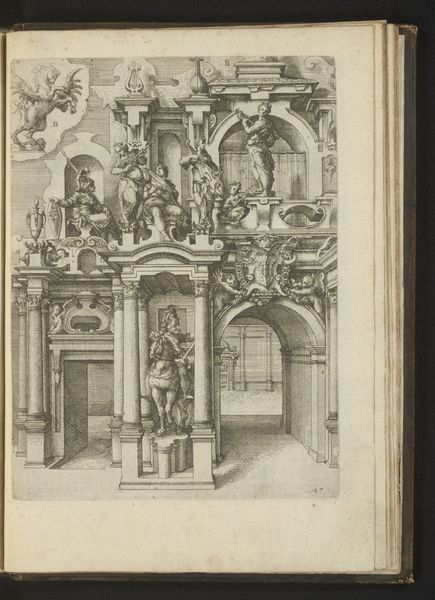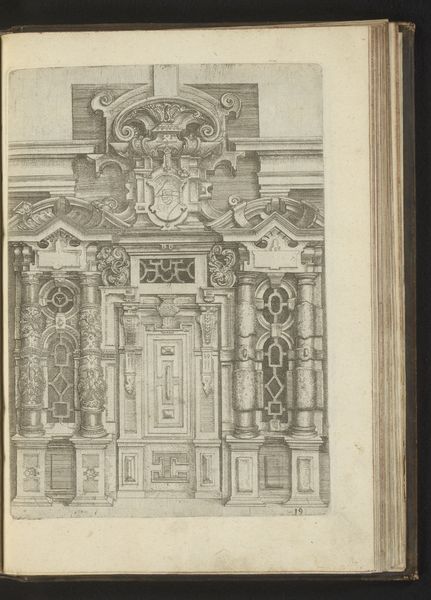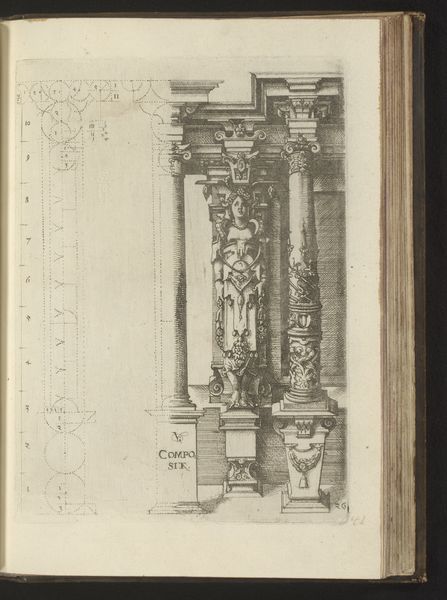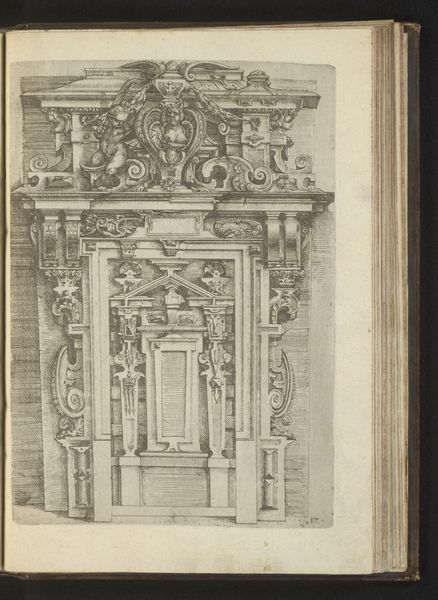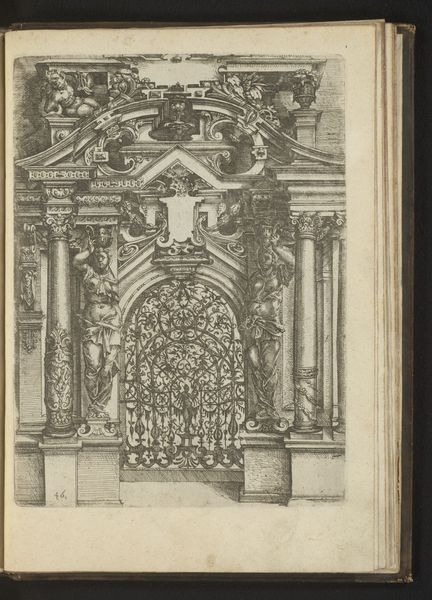
Portaal met ijzeren hekwerk en gedecoreerd met mascarons en rolwerk 1593 - 1595
0:00
0:00
drawing, paper, ink, engraving, architecture
#
drawing
#
aged paper
#
toned paper
#
mechanical pen drawing
#
sketch book
#
paper
#
form
#
11_renaissance
#
personal sketchbook
#
ink
#
geometric
#
pen-ink sketch
#
pen and pencil
#
line
#
pen work
#
sketchbook drawing
#
history-painting
#
northern-renaissance
#
sketchbook art
#
engraving
#
architecture
#
realism
Dimensions: height 245 mm, width 186 mm
Copyright: Rijks Museum: Open Domain
This is an engraving of a portal with iron gates made by Wendel Dietterlin in the late 16th century, showcasing a wealth of symbolic ornament. The mascarons, or grotesque faces, carved into the stonework, serve as powerful visual devices designed to ward off malevolent spirits. Throughout history, the grotesque has appeared in many forms, from ancient Greek theatrical masks to the gargoyles of Gothic cathedrals. These images tap into a deep, subconscious part of our psyche, evoking a sense of awe mixed with fear. Much like the faces found on ancient Roman buildings, these motifs serve not only as decoration but also as a potent reminder of the boundaries between the human and the supernatural. This interest in using powerful symbolic imagery connects to an enduring human fascination with the interplay of beauty and horror. The recurrence of such motifs speaks to the cyclical nature of cultural memory, where images resurface, evolve, and take on new meanings.
Comments
No comments
Be the first to comment and join the conversation on the ultimate creative platform.
